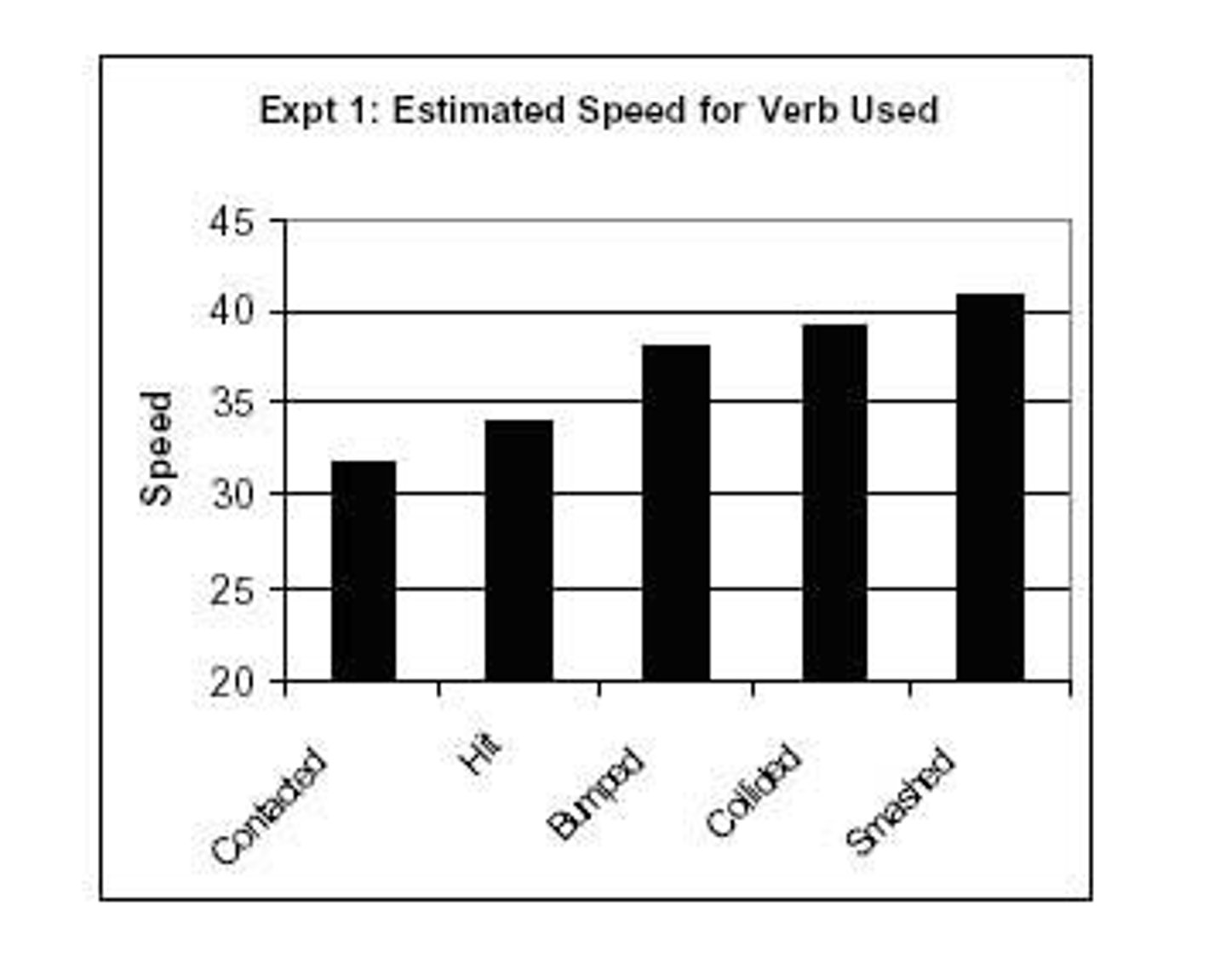CLOA Part 1: Reconstructive Memory (Loftus & Palmer)
1/10
There's no tags or description
Looks like no tags are added yet.
Name | Mastery | Learn | Test | Matching | Spaced |
|---|
No study sessions yet.
11 Terms
Reconstructive Memory
the process whereby memories of an event become distorted by information encountered after the event occurred
Loftus and Palmer-Aim
To investigate how memory can be influenced by language (leading questions) and post-event information (schemas)
Loftus and Palmer-Hypothesis
The word used in a question would affect the answer to the question due to previous associations with the word created by schemas
Loftus and Palmer-Sample 1
45 American students (opportunity sample)
Loftus and Palmer-Variables (1)
IV: The verb used (smashed, hit, bumped)
DV: The speed estimate the participants gave
Loftus and Palmer-Procedure (1)
They were shown videos of seven car accidents, split into five equal groups, and asked about the speed of the car in different ways
→ Group 1: "How fast were the cars going when they SMASHED each other?"
→ Group 2: "How fast were the cars going when they HIT each other?"
→ Groups 3-4: Collided, contacted, bumped
The verbs used have different connotations and activate different cognitive schemas about the severity of the accident
Loftus and Palmer-Results (1)
The estimated speed was affected by the verb used, which influenced their memory of the accident as it implied speed
The mean estimates of speed were highest in the 'smashed' condition and lowest in the 'contacted' group; the results were highly significant (p ≤ 0.005)

Loftus and Palmer-Conclusion (1)
The verb in the question gave an impression of speed, influencing their perception of the event
→ Eyewitness testimonies can be biased by the way questions are asked
There are two explanations for this event:
1. Response-bias Factors: The wording can bias or influence a response but does not lead to confabulated details and false responses
2. Altered Memory: The wording actually changes a perception of the incident and this is stored in their memory of the even
Loftus and Palmer-Link
The study supports their hypothesis as well as the idea of reconstructive memory. It shows the effects of post-event information and the nature of questions on eyewitness testimonies, schema processing, and recall accuracy. This reveals how eyewitness testimonies are not reliable as they can easily be influenced, and how memory is reconstructive in nature.
Loftus and Palmer- Strengths
→ Replicability: The study used a standardised procedure
→ Causation: The study was rigorously controlled so it was possible to establish a causal relationship between the IV and DV
→ Quantitative Data: The comparison between conditions are easier to analyse as it clearly shows how memory is affected by the wording of the questions
Loftus and Palmer-Weaknesses
→ Low Ecological Validity: The study used video clips (less emotional impact compared to a real accident) → they would pay less attention and be less motivated to be accurate
→ Sampling Bias: The study made use of students (non generalisable) who are less experienced drivers → less confident in their ability to estimate speeds → swayed by the verb in the question
→ Demand Characteristics: The participants may have shown certain behaviours as they knew they were part of a study
→ Lack of Qualitative Data: There was no opportunity for participants to comment either on what they remembered, or on their experience of being questioned in this way